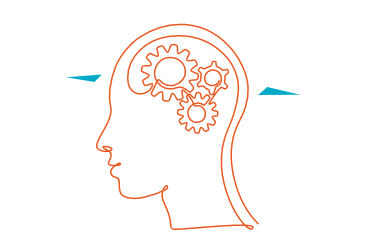How long did it take you to break that New Year's Resolution? Or are you sticking with it?
Are New Year's Resolutions a waste of time for you? Or is it more about setting your intentions and building enduring habits to meet these?
I love to use the downtime that often comes at the start of the year to review, reset, and get ready to go again. Still, I know from experience, my own included, that the big resolutions people set are usually dead and buried by February.
So, what can we do as leaders to set the right intentions and build the habits to make these a reality, bringing the effective change we want to implement from our regular reflections?
Building Good Habits
Bad habits seem to appear and become part of our lives without too much work. This is because they usually involve some form of dopamine hit, whether that is scrolling on your phone or having a few glasses of wine on a Friday night.
However, the good habits, the ones that will help us become the person and leader we want to be, involve a lot more self-discipline, dedication and focus.
As a leader who constantly learns and develops to help their team grow, you will have the capacity to build good, strong habits to create the change you need to see in yourself and your team. But how do you make it stick?
Here are three key steps to building the good habits you need to achieve your goals.
Start Small and be Intentional
Changing your habits and, essentially, your lifestyle can feel overwhelming. So start small and focus on one or two small habits that work together at a time.
Spend a little time writing down some habits that form your everyday life, at home and work, and identify which contribute to your life and those that don't. Pick one or two you want to change or introduce that you know will make a difference.
Once you have decided, you need to be intentional about it. Define where and when your habit will occur so there is a prescribed approach. You could align it with another habit to develop good patterns. Ensuring these are small and setting the environment to make these the easiest choice can help significantly.
For instance, if you are not good at remembering the key points from a meeting, and this can make you miss a deadline, factor in fifteen minutes after every meeting to give yourself the time to write up or review the AI transcribed notes and put the key tasks into your diary.
As your meetings become more focused and objective, you can allocate 45 minutes to the meeting and 15 minutes for reflection and planning your actions.

Make Habits Visible and Appealing
Recognising and writing down the habits you want to build so they are visible can be an important step.
Whether in a journal, a habit-tracking app, or even on a whiteboard, this keeps them at the top of your mind, motivates you, and helps you identify areas for improvement.
Journalling your progress, in whichever format suits you, also helps track performance.
You can review the progress and identify what is working and what is not. These changes won't happen overnight and won't always work, so monitoring and adjusting them, even in a small way, can help. Often, we focus on what's not working, but it's essential to recognise the progress we are making to embed and add to this.
The behavioural change you seek seldom happens without some form of positive reinforcement. You could align it with something you like doing or join a group of friends who are all working toward a similar change.
You might be keen to build your network this year, so you could join a new networking group where you meet new and interesting people who aren't in your traditional circle and/or choose to go it alone rather than with your regular "networking buddy". What makes this an interesting group from which you could learn? How much are you willing to push out of your comfort zone?
You could also align the new habit with an existing one you particularly enjoy. For instance, make that first refreshment of the morning your cue to get that first hit of daylight outside breather in some nature and set your intention for the day.
Finding something you enjoy and combining it with that new habit is beneficial.
Preparation and Reward
Developing new habits is often tricky because many of your current habits fit around the existing patterns of your life. There are triggers and prompts that inspire you to take action, whether that is good or bad. So, adding something new will take effort and focus and will be easily sidetracked if there are distractions.
To help prepare your environment, remove the main distractions, and make the transition to your new habit as easy as possible. Leave your favourite mug by the kettle with a warm jacket on hand before you go to bed to make that first step outdoors more natural and easy.
You need discipline to maintain the patterns and build the necessary repetition to make the change a habit. Often, it can come down to setting intentions, the right environment, and ease of access the evening before to make you take that step that will dictate the rest of your day.
For instance, if you want to build a habit of exercise but only have time at the start of your day, getting out of bed rather than pressing snooze could be your biggest challenge.
Prepare your kit the night before and leave it where you have to trip over it to avoid it. Write down your planned session the night before to remove the challenge of not knowing what to do. Perhaps sign up for a class, so there is the added incentive of meeting other like-minded people as motivation.
Removing all obstacles and adding incentives will help you establish your habit.
However, if this is too big of a challenge to start with, you can break it down further. Just start with the two-minute rule from James Clear. Set out your exercise clothes, get up, and put them on. That is a start. You have created a habit. Follow that up the next day with the same, but take the next step of driving to the gym or exercising at home. After a while, your habit will become a regular part of your routine.
Changing or creating a new habit is not easy, so make it worthwhile. Add incentives or rewards to make the change noticeable and highlight if it has not been achieved. Rewarding good behaviour, no matter how small, can help sustain it until it becomes part of your routine.
A good example might be that you regularly buy yourself a coffee and a cake in the morning as part of your daily routine heading into work.
However, you want to create a more meaningful breakfast routine, so as a reward for skipping by the coffee shop quickly, you transfer the £5 you would have spent into a savings account. At the end of the month, you can check the amount saved and perhaps spend it on something more substantial.
This is a small example, but the principle is the same: Find a reward to inspire a change in habits.

Building Great Leaders with Good Habits
January's New Year's Intentions are a great time to start fresh and incorporate meaningful change that could impact your leadership and team.
However, creating change without good habits is very difficult. So start small and be intentional about the habits you want to change. Keep them visible, record and review them to ensure you are making progress, and remember to reward your progress.
With the proper habits in place, you will be working on new habits come January 2026.

Executive Coaching
An extremely powerful resource for Leaders to improve and develop leadership skills, improve communication, and set better goals.

Leadership Development
Ignite - igniting leadership in founders and inspiring growth in team members. Accelerate - for ambitious, emerging leaders and those transitioning into senior roles in high-growth businesses
